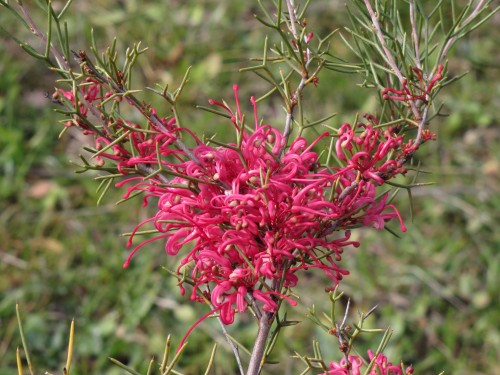Rules of writing
Books about writing
Over the years I have read a growing number of books and articles about writing. I still have quite a pile to finish; some I haven’t even started. Funny thing is that the pile never seems to diminish. When I was doing my Master of Arts (creative writing) degree I devoured many quite wonderful books about writing. Here and there I picked up little gems of wisdom from great practitioners of the craft.
The key to success
Over the last decade I have also trolled the internet for that magic bullet, a priceless pearl of wisdom, or the key to open the door to success as a writer. I am still looking. I am slowly coming to realise that I should have looked in the dictionary first. Work – hard work – is the only real key to success.
That is not to play down the importance of reading about the craft of writing in books and on the internet. Much can be learned from these sources. Every now and then I come across a sentence, or a paragraph and even a whole chapter or article which makes an immediate impact. Putting that wisdom into practice is the hard part.
Lists, lists and more lists
One thing I have noticed about internet and blog articles in particular is the love of lists. It seems like hundreds, maybe even thousands, of writers are making lists. 10 ways to be a better writer. 7 sure ways of getting published. 9 methods of securing an agent. The ‘list’ could go on and on.
No; I am not going to write a list. (Confession: I have been known to – see here.)
Instead, I am going to reflect on a list I read a few days ago. The article is called Zadie Smith’s 10 rules of writing. I will comment on just a couple of them.
Avoid cliques, gangs, groups. The presence of a crowd won’t make your writing any better than it is.
I understand what the she is trying to say. Sometimes a group of fellow writers can muddy the water, and they will make suggestions which are not only not helpful, but are downright harmful. An example occurred with one of degree supervisors; she didn’t understand the climate of the country where my novel was set. Generally however, I find that belonging to a writers’ group can be very beneficial. Many of my reasons are included in articles here and here and here and here.
Work on a computer that is disconnected from the internet.
Guilty as charged.
I spend – often it is waste – too much time checking and reading my email, Facebook updates and Twitter feeds. I guess I should regard that wasted time as lost income from writing.
Protect the time and space in which you write. Keep everybody away from it, even the people who are most important to you.
Dealing with this one is far more difficult for me. While my wife encourages me by giving me the time and space to write, most other people regard me as retired. Sure, 10 years ago I retired from classroom teaching. Now I try to be a full time writer. That has been very difficult over the last few years when my wife was caring full time for her mother and left me to deal with the housework. We were also without a pastor at church, so I was spending 10 – 15 hours or more running the church. Both of those situations have now changed, so I am without excuse.
Further reading:
- Join a writers’ group
- Another benefit of joining a writers’ group
- Fun at my writers’ group
- The importance of a writers’ group
The photo below has nothing to do with this article. I just think it’s a lovely flower.
Forgetting the obvious
Late last week our next door neighbour asked permission to enter our property over the weekend. He was planning to trim some of our trees leaning over his fence. Not only would this be much tidier, it would reduce the fire hazard on his property, something we have to be very aware of here in South Australia, especially as another summer is approaching rapidly.
As he started Friday afternoon I went over to chat to him, asking for more details on what he proposed to do. One of the tools he had hired was a chainsaw with a long extension arm on it. At full extension he could reach nearly 5 metres while standing safely on the ground. I immediately saw the potential regarding one tree in our garden.
I had forgotten the obvious.
A few months ago I had tried climbing up a ladder to lop the top two thirds of a tree near the house. From about two in the afternoon this tree shades our PV solar panels, diminishing their efficiency for the rest of the afternoon. Even cutting this tree to the base will not kill it. In fact, mallee trees thrive on this trimming and will regrow quickly. My attempt to trim the tree was unsuccessful; it was unsafe at that height.
I had forgotten the obvious.
The obvious solution was to hire one of those very useful chainsaws with an extension. Doh. I offered to help my neighbour in his trimming – if he would come over and trim my tree. In about ten minutes the job was done. I then spent the next few hours helping him in return, offering to tidy up after him cutting and getting rid of the cut wood. Next winter we will keep warm with this wood.
Forgetting the obvious
When we are writing we can so easily forget the obvious. We blaze away writing a story, poem, article or novel and then shoot the manuscript off to a publisher. Then we wonder why it didn’t get accepted when it returns many months later. Some of the obvious things we forget include:
- Proofreading for spelling errors.
- Checking that the grammar is correct.
- Rewriting repetitive or hard to understand parts.
- Checking the publishers requirements; don’t send a poem to a car enthusiast’s magazine – unless they specifically are asking for poems about cars.
- Check the maximum (and often the minimum) word count required; this is especially important in writing competitions.
- Get someone else to read your writing, checking for understanding, grammar and spelling. And typos.
- Keep a copy of your work.
- Check you’ve included your name and contact details.
- Keep writing. Don’t twiddle your thumbs while waiting for the publisher to reply; it could be months!
Good writing.
Doing some weeding instead of writing
Gardening
Over recent days I have been spending more time out in the garden than at my computer attending to my writing. The spring weather has generally been wonderful and the spring rain a bit above average. The rain has come at about the right intervals to promote and maintain weed growth, hence the need for me to spend a great deal of time in the garden.
A big garden
Let me hasten to add that our garden is no ordinary quarter acre block common to many Australian homes. We have 5 acres (2 hectares) of land on the edge of the rural city where we live here in South Australia. It’s a challenge to look after and demands one keep on top of things.
Neglect
Sadly, the property has been quite neglected over the last 3 years while I completed my Master of Arts in Creative Writing. Now that I’ve graduated I can focus a little more on the extras – like gardening. One of the most time consuming tasks in recent weeks has been keeping on top of the weeds. We have planted many native Australian plants – like the one being enjoyed by one of our resident birds shown in the photo above. For these plants to really thrive I need to maintain a weed free zone around them. The weeds have a habit of taking over and choking out the growth.
Weeding my novel
This time last year I was doing a different kind of weeding. I was working very long hours – sometimes 10 to 12 hours a day – trying to get my novel into shape. The novel was my thesis paper for my degree and it had to be as near to perfect as possible. I spent many tiring hours weeding out all unnecessary words, phrases and even paragraphs. Every novel, short story, poem or article needs this treatment. Make every word count, weed out every lazy, useless and careless word.
You’ll stand a much better chance of getting your writing accepted for publication.
Good writing.
Saying it differently
I enjoy reading the works of writers who say things differently.
It is so easy to slide into clichés, to over use words and especially phrases and expressions which are so old and familiar that their corpses are not only rotten; they smell worse than a skunk sprayed dog before it’s been washed.
It is a rare event when a politician, public figure or some other prominent citizen comes up with something arrestingly original. I laughed out loud earlier this week when I heard someone say, in reference to our federal government, the following words:
“They promised us the world, but they just showed us a picture of an atlas.”
How wonderful.
More power to the people out there not content to squirm in the mud of mediocrity, but make an effort to create new ways of making their point.
Good writing.

